General Phan Van Giang, Minister of National Defense, shared that there are people who used to work for Boeing, Airbus, Lockheed Martin with very high salaries and a comfortable life, but still return to Vietnam to work.
On the afternoon of November 8, the National Assembly discussed in groups the draft Law on Defense Industry, Security and Industrial Mobilization. This is the first time the draft law has been submitted to the National Assembly for comments, so it has received much attention from National Assembly Deputies.
Speaking at the Thai Nguyen delegation, General Phan Van Giang , Minister of National Defense, mentioned the connection between the defense industry and the security industry in this draft law.
Regarding the legal basis before this draft law, there was the Ordinance on Defense Industry (2008), the Ordinance on Industrial Mobilization (2003), but there were no sanctions on security industry other than Decree 63 of the Government (2020).
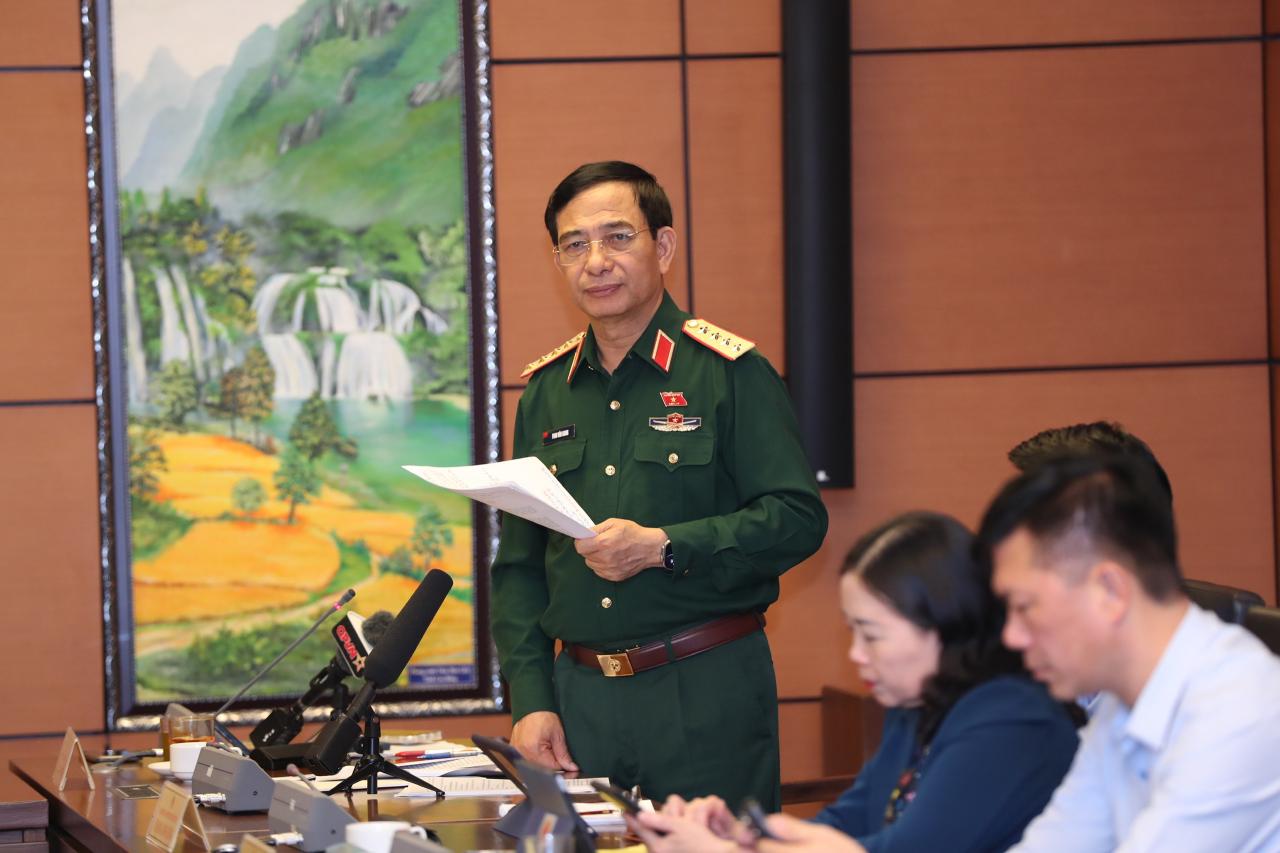
General Phan Van Giang spoke this afternoon.
“The defense industry and the security industry are closely linked. The draft law clearly states that what the defense industry has done, the security industry will inherit and use. What the defense industry has not done or researched but the security industry has researched, the defense industry will not invest or research in that field,” General Phan Van Giang analyzed.
The 2019 Vietnam Defense White Paper clearly stated that Vietnam pursues a defense policy of 4 nos, with the viewpoint of being modern, self-reliant, self-reliant, and self-reliant. The Minister of Defense said that when attending world security conferences, he always talked about this defense policy.
Explaining some of the processes of manufacturing weapons equipment, the Minister of Defense emphasized that this is a very difficult field, "you cannot say this year I will do this, next year I will do something else". However, it is necessary to make the defense and security industry a spearhead of the country.
Meanwhile, arms exporting countries do not transfer core technology. Vietnam is gradually producing some types of weapons itself, not depending on imports.
Regarding the mechanism for attracting and rewarding human resources for the defense and security industry, Minister Phan Van Giang cited Viettel's current status as being due to its special mechanism for attracting human resources.
"There are people who work abroad and earn about 300-400 million VND/month, when they return to Vietnam, their salary must be 150 million VND/month. The farther they go, the more they want to return. Returning to the country to contribute if they are admitted to the Party, becoming an officer and commander, is also the wish of the majority of scientists. Many people want that. We attract those people," General Phan Van Giang shared.
He said that there are people who used to work for Boeing, Airbus, Lockheed Martin with very high salaries and a comfortable life, but they still return to Vietnam to work. These are good people so there must be a separate policy to treat them.
The Minister of Defense affirmed that the opinions raised by delegates will be received and edited by the drafting committee to report to the National Assembly.
Scientists need to be protected as VIPs.
Previously, Deputy Hoang Anh Cong (Thai Nguyen) said that there should be a policy to attract scientists who are not officers currently working at institutes and research facilities at home and abroad.
"These are people who are very good at core technology and foundational technology. We must have mechanisms and policies to attract them. This has been mentioned in the draft law, but it has not been clearly demonstrated," the delegate suggested that the drafting committee revise the draft law to be more clear.
Especially for leading scientists, in addition to the salary and benefits mechanism, according to the Deputy, there needs to be a protection mechanism. Many countries have leading scientists under the protection regime as VIPs. Because to have a scientist is not simple, in millions of people there is only one person.
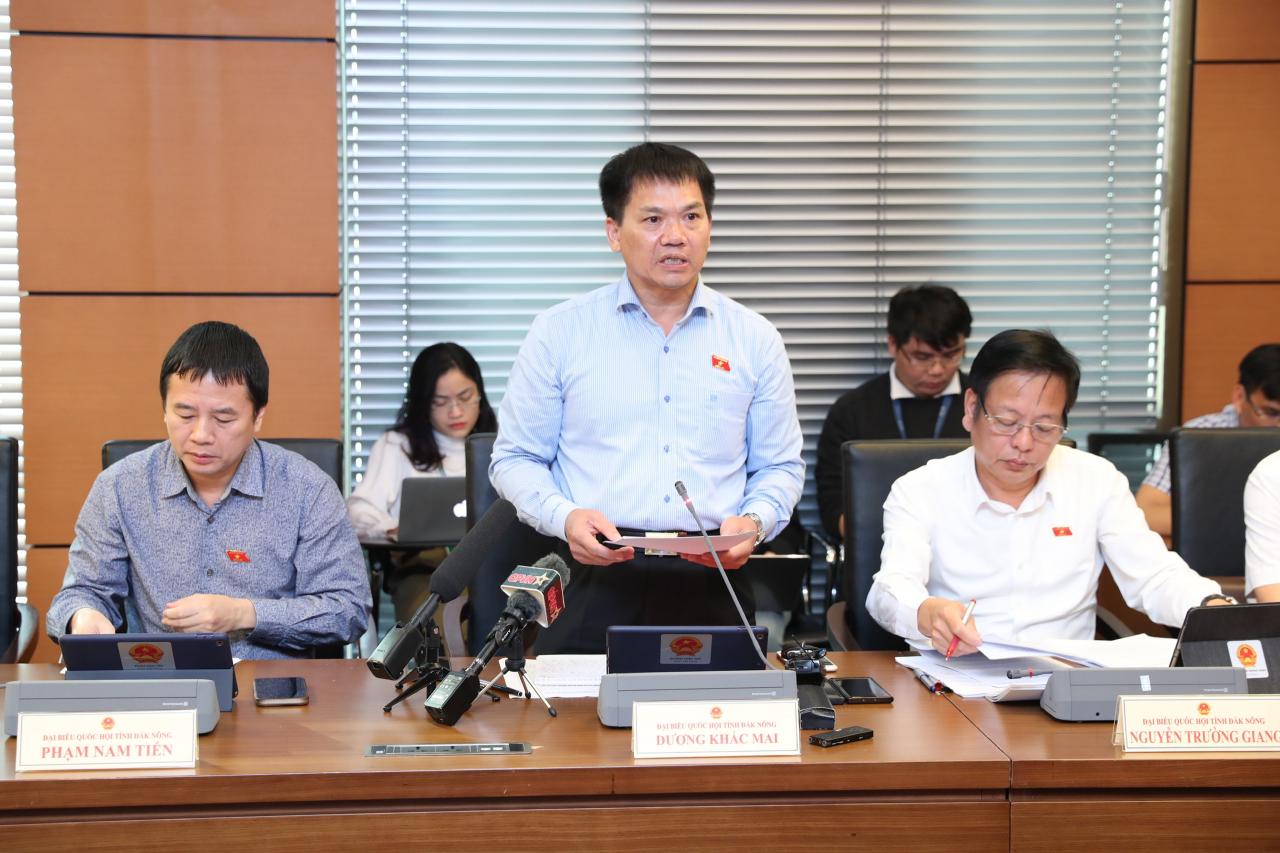
Deputy Duong Khac Mai.
Deputy Duong Khac Mai (Dak Nong) commented that, given the complicated developments of the current international conflict and the task of protecting the country, the draft law plays a very necessary role.
“From the three-pronged bomb to the missile that intercepted B52 aircraft in the sky over Hanoi during the fierce war years and the unmanned aircraft that Viettel recently manufactured, these are important steps forward,” Mr. Mai emphasized.
He said the draft law aims to make Vietnam a country with a developed defense industry in the short and long term for national security, protecting the territory and realizing the aspiration of becoming strong.
Vietnamnet.vn


![[Photo] More than 17,000 candidates participate in the 2025 SPT Competency Assessment Test of Hanoi National University of Education](https://vphoto.vietnam.vn/thumb/1200x675/vietnam/resource/IMAGE/2025/5/17/e538d9a1636c407cbb211b314e6303fd)


![[Photo] Readers line up to visit the photo exhibition and receive a special publication commemorating the 135th birthday of President Ho Chi Minh at Nhan Dan Newspaper](https://vphoto.vietnam.vn/thumb/1200x675/vietnam/resource/IMAGE/2025/5/17/85b3197fc6bd43e6a9ee4db15101005b)

![[Photo] Prime Minister Pham Minh Chinh chairs meeting on science and technology development](https://vphoto.vietnam.vn/thumb/1200x675/vietnam/resource/IMAGE/2025/5/17/ae80dd74c384439789b12013c738a045)
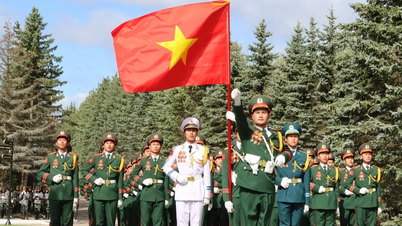

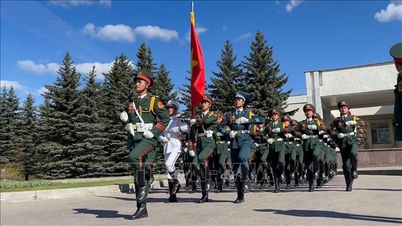

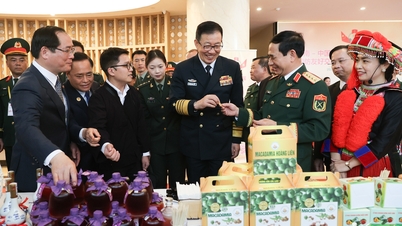




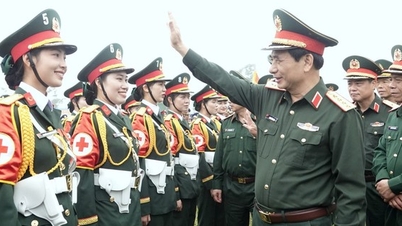
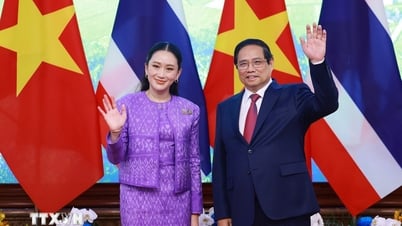

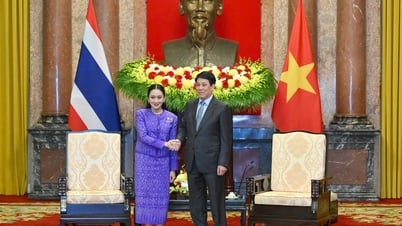

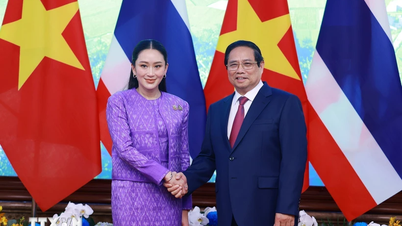
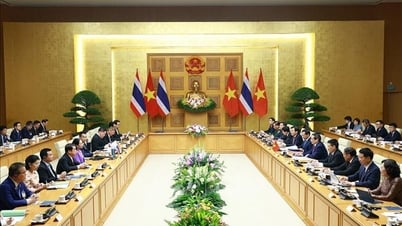

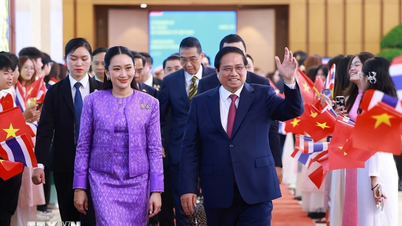

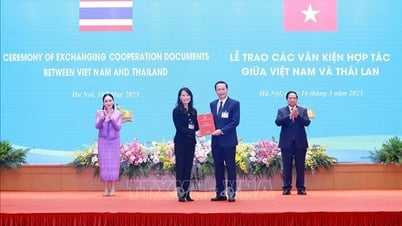








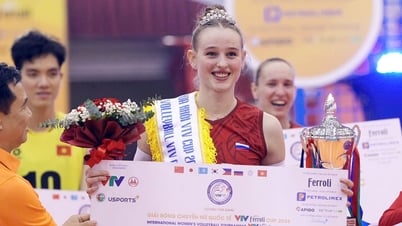

![[Photo] Nearly 3,000 students moved by stories about soldiers](https://vphoto.vietnam.vn/thumb/1200x675/vietnam/resource/IMAGE/2025/5/17/21da57c8241e42438b423eaa37215e0e)

















































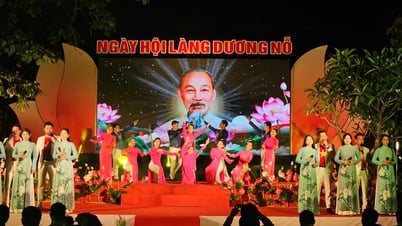


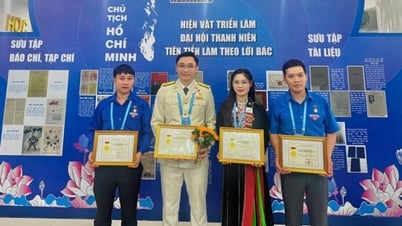

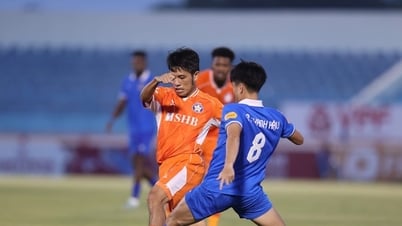
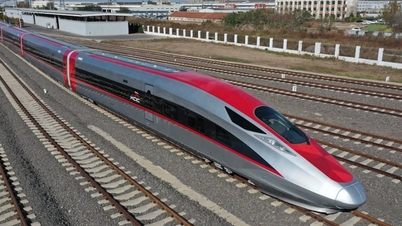











Comment (0)